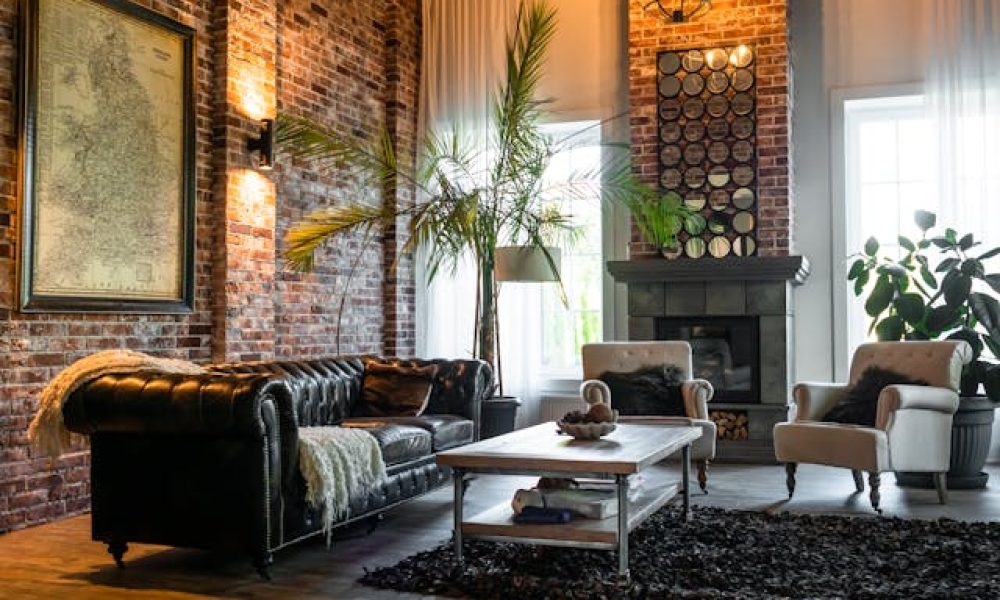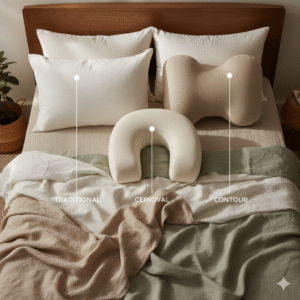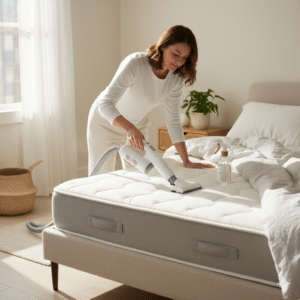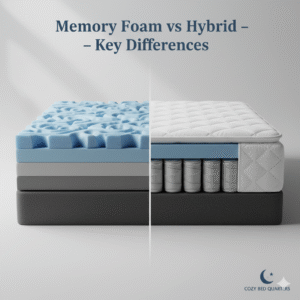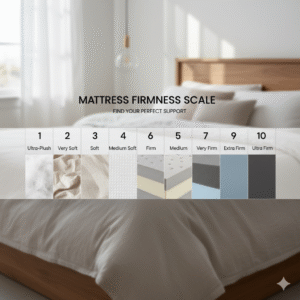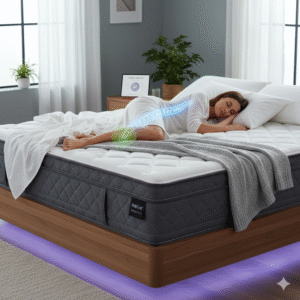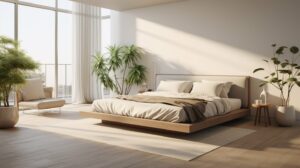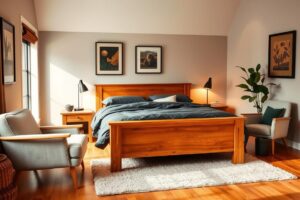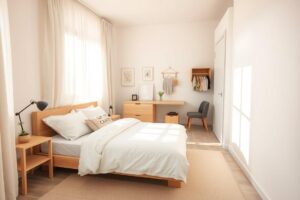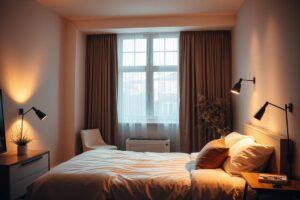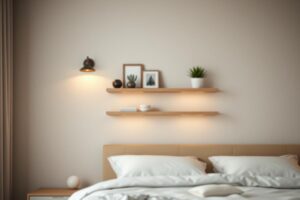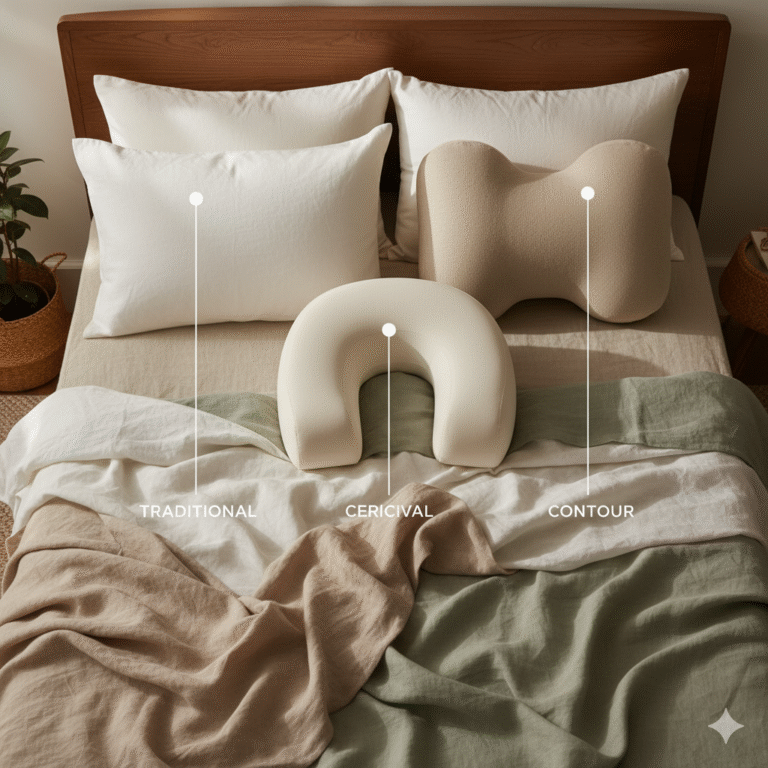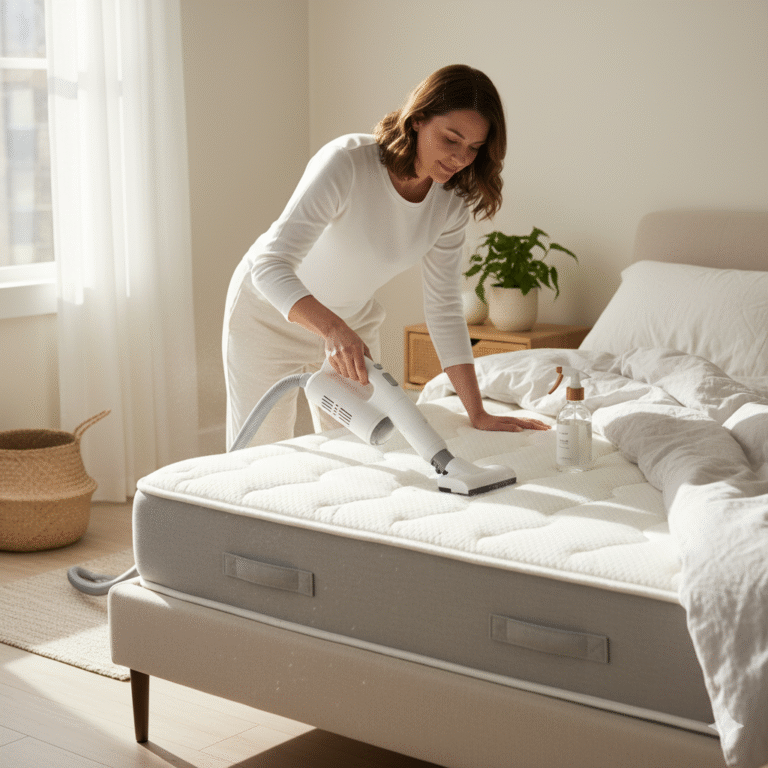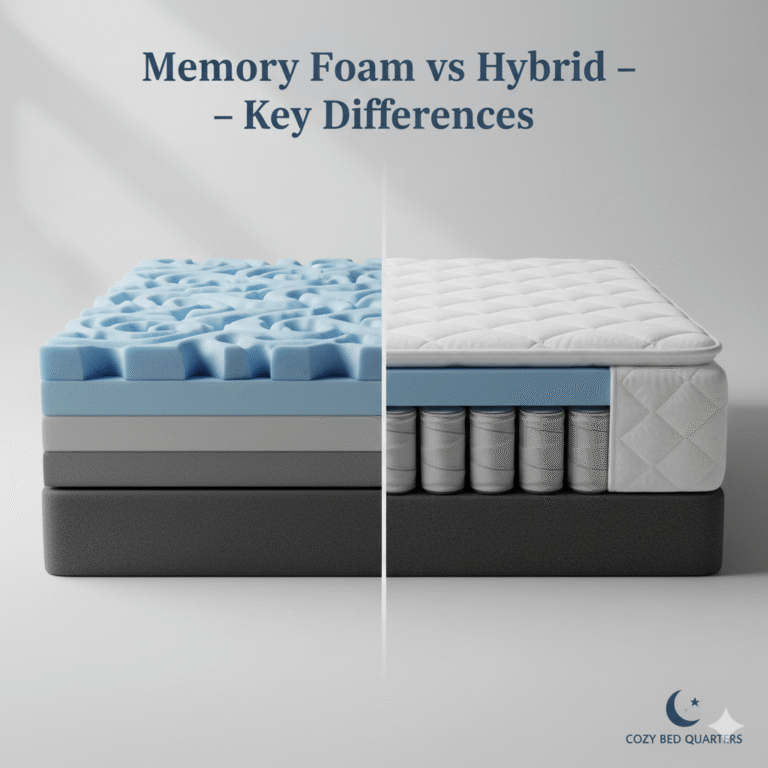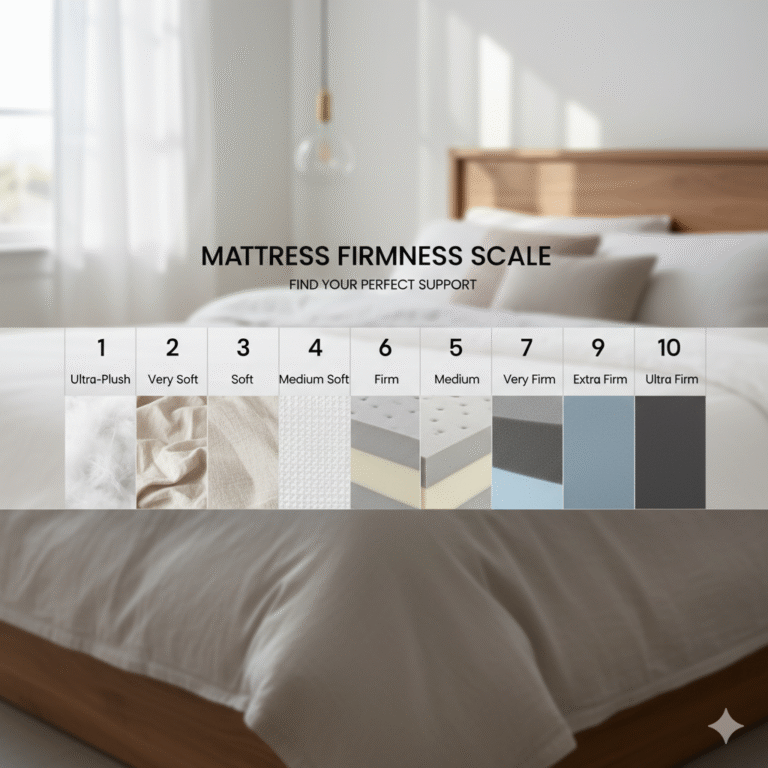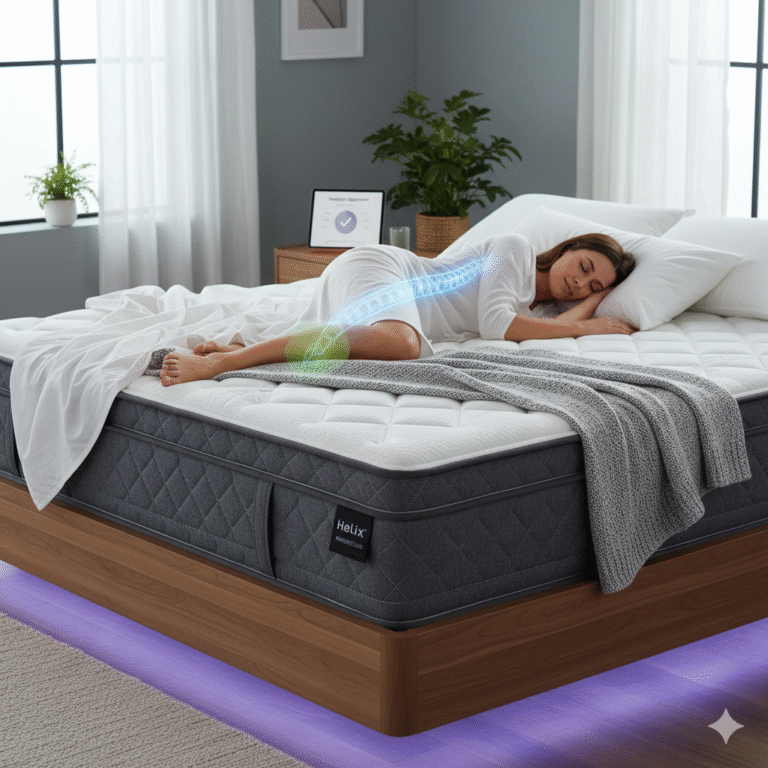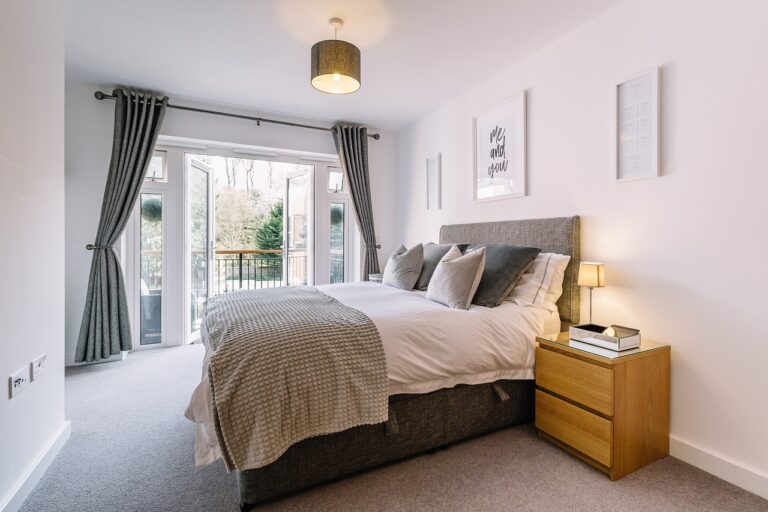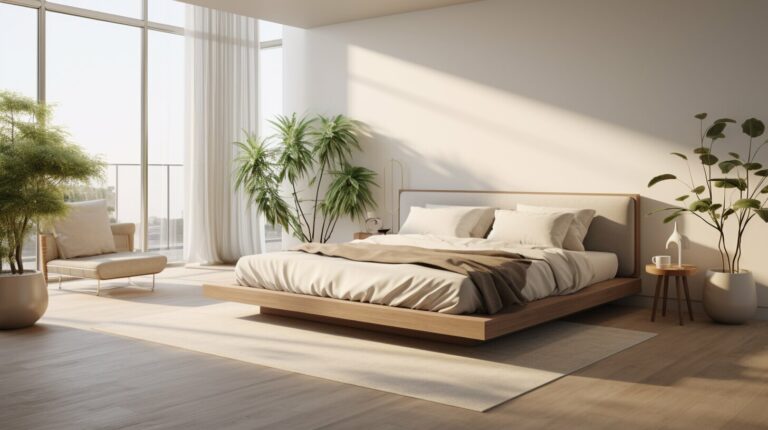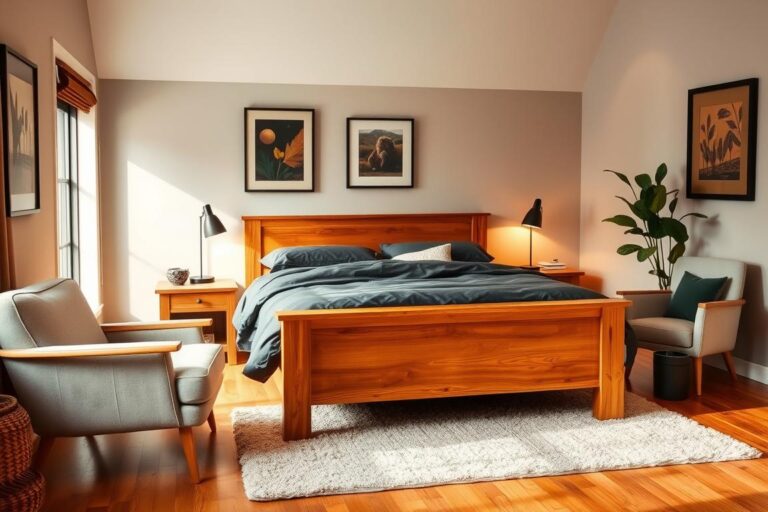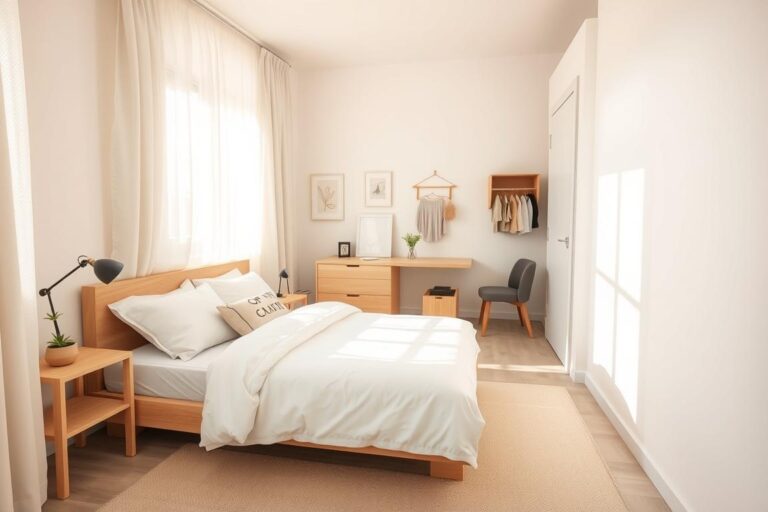Bedroom Furniture Space Saving Ideas: Clever Hacks That Make Tiny Bedrooms Feel Huge
Quick answer: Use bedroom furniture space saving ideas like storage or loft beds, slimline wardrobes with organizers, and wall-mounted pieces. Combine them with a clear layout and a few high-impact accessories (hooks, mirrors, baskets) to make even tiny rooms feel open and calm.
Key Takeaways
- Prioritize multifunctional furniture (storage/loft beds, folding desks) to replace bulky extras.
- Build upward with tall wardrobes, floating shelves, and over-door organizers to free floor space.
- Right-size everything: slim frames, sliding doors, and light finishes keep paths clear.
- Plan the layout to protect natural walkways; keep taller pieces along walls.
- Use small helpers—mirrors, hooks, baskets, and drawer dividers—to keep daily clutter in check.
Introduction
Declutter first, then swap single-use pieces for multifunctional designs to transform how large your bedroom feels.
Small bedrooms can feel cramped, cluttered, and uncomfortable. But with a few smart ideas and the right furniture, they can feel open, organised, and relaxing. This guide shares practical bedroom furniture space saving ideas that help you make the most of a small room.
If you’re a student, renter, or budget-conscious buyer with limited square footage, these tips are simple to apply. From choosing multi-purpose furniture to using your walls more efficiently, you’ll learn how to create a more comfortable space without spending a lot.
Why Smart Furniture Makes a Big Difference
Dual-purpose furniture unlocks storage and keeps walkways open—instantly making small rooms feel larger.
In a small room, every inch counts. Bulky furniture and poor layout can make your space feel smaller than it is. The key is furniture that serves more than one role so your room looks cleaner and supports your daily routine.
Space-saving choices help you:
- Maximise available storage
- Keep the room open and breathable
- Make cleaning easier
- Create a peaceful place to sleep, work, or relax

Essential Space Saving Principles
Choose Multi-Functional Furniture
Pick pieces that do double duty—especially beds with storage and fold-away work surfaces.
Beds with built-in drawers or lift-up platforms offer room to store clothes, bedding, or shoes. A folding desk that attaches to the wall can act as a workspace and disappear when not in use. Even a stool can be a seat and a storage box.

Use Vertical Space
Tall wardrobes, floating shelves, and wall organizers add capacity without stealing floor area.
Instead of filling your room with floor-standing units, think vertically. Wall-mounted shelves and hanging organisers help you store more while keeping the floor free. Floating nightstands or desks also create more visible floor space.

Scale Your Furniture
Right-size every piece—slimmer frames and sliding doors protect pathways and sightlines.
Avoid oversized headboards, deep dressers, or large side tables. Choose slim, light pieces with simple designs so the room feels less crowded.
Practical Bedroom Furniture Space Saving Ideas
Storage Beds
A storage bed can replace a full dresser by using space under the mattress.
Beds with built-in drawers or lift-up platforms add a huge amount of storage. You can store seasonal clothing, shoes, or extra bedding without taking up more space. A single piece of furniture can replace an entire chest.

Loft Beds
Raise the bed to free a workstation, lounge, or storage zone underneath.
A loft bed creates usable space below the mattress for a desk, sofa, or drawer unit—ideal for kids’ rooms, dorms, or small studios.
Folding Desks and Wall-Mounted Tables
Fold-flat work surfaces deliver function when needed and disappear the rest of the time.
A wall-mounted desk is great if you need to work in your bedroom. Fold it up when not in use to keep the room open.
Slimline Wardrobes
Go tall and shallow with sliding doors and interior organisers to maximise capacity.
Choose sliding doors to avoid swing clearance. Inside, use shelf dividers, baskets, and hanging organisers to use vertical space.
Floating Shelves
Open shelves double as display and storage without visually crowding the room.
They work well above desks, dressers, or beds and keep the floor clear for circulation.
Under-Bed Storage
Use low bins or boxes if your frame lacks built-ins to reclaim unused space.
If your bed doesn’t have built-in storage, use low-profile containers that roll underneath for off-season clothing or gear.
Multi-Use Nightstands
Pick nightstands with drawers, shelves, or trays so they work harder in less space.
They corral cables, books, and small items without requiring extra furniture.
Over-the-Door Storage
Turn the back of your door into bonus storage for shoes, bags, or accessories.
Hanging organisers add capacity without using any floor area.
Pegboards
Modular pegboards adapt as your needs change—perfect for small items and chargers.
Customise with hooks, trays, and mini-shelves; rearrange anytime.
Corner Shelves
Put idle corners to work with tall units or simple triangular shelves.
Corners are often wasted yet ideal for display or light storage.
Picking the Right Bedroom Furniture Sets
Buy only what fits: prioritise a bed and wardrobe, choose built-in storage, and avoid oversized pieces.
Bedroom furniture sets can help you keep your space consistent in style, but they must also be practical in small rooms. Always check dimensions before buying.
Here’s how to choose wisely:
- Focus on essentials like a bed and wardrobe
- Pick items that offer built-in storage
- Avoid large dressers or wide nightstands
- Look for sets that include multi-use items
- Stick to light colours to keep the space open
If your space is very limited, skip full sets. Mix pieces that match in colour or style for the same cohesive look while fitting better.
Bedroom Accessories That Save Space
Small add-ons—mirrors, hooks, baskets, and drawer dividers—keep clutter in check and boost perceived space.
The right bedroom accessories can help organise your space even further. These subtle upgrades often make a big difference in how your room feels and functions.
Mirrors
Use tall mirrors to bounce light and visually double the room’s depth.
A wall-mounted mirror or a door-back mirror adds brightness and depth.
Hooks and Wall Racks
Put everyday items on hooks to free drawers and surfaces.
Install them for coats, bags, and hats; add a rack for scarves, belts, or towels.
Storage Boxes and Baskets
Group small items in labelled boxes to keep shelves neat.
Place them on shelves or in the wardrobe to maintain order and speed up cleaning.
Drawer Organisers
Divide drawers so every item has a home—clutter stays gone.
Use dividers or small trays to sort socks, accessories, and cords.
Foldable Hampers
Choose collapsible hampers so laundry storage expands only when needed.
They save space and keep clothes off the floor in tight rooms.
Bedroom Layout Tips for Small Rooms
Protect clear walkways, avoid blocking windows, and cluster functions (sleep, work, storage) for effortless flow.
The layout of your bedroom affects how big it feels. A good plan leaves open paths, uses corners well, and avoids placing large furniture near doorways.
Use these tips:
- Keep walking paths clear
- Don’t block windows or doors
- Put taller furniture along the walls
- Group items by purpose (sleeping, working, storing)
- Leave space between items to let the room breathe
Sketch your layout or use an online tool before moving or buying furniture.
Real-Life Examples
A Student in a Shared Apartment
A loft bed plus sliding-door wardrobe and floating shelves turned a 10′×9′ room into a tidy study-sleep zone.
She chose a loft bed with a desk underneath. A tall wardrobe with sliding doors held her clothes. Floating shelves above the desk added storage for books and décor. The room felt bigger and stayed neat even with regular use.
A Family Bedroom in a Small Flat
A storage bed, compact cot, and wall hooks created calm order for parents and baby in one room.
They used drawers under the bed for adult clothes and baby supplies. Corner shelves and over-door organisers kept essentials handy. A shared wardrobe with organisers kept everything reachable.
Pros and Cons of Common Space Saving Items
Every solution trades space, budget, and convenience—use this quick table to pick what fits your needs.
| Furniture or Item | Pros | Cons |
| Storage Beds | Extra space for clothes and bedding | Heavy and harder to move |
| Loft Beds | Creates room for desk or storage below | Not suitable for all ceiling heights |
| Floating Shelves | Keeps floor free, modern look | Needs secure wall installation |
| Foldable Desks | Saves space when not in use | Smaller work area |
| Over-the-Door Organisers | Adds storage without using floor space | May feel cluttered on the door |
| Slimline Wardrobes | Good for tight spaces, holds a lot | Tall shelves may be harder to reach |
Frequently Asked Questions
- Can I make a small room feel bigger without buying new furniture?
- Yes. Decluttering, rearranging furniture, using light colours, and adding mirrors can all help a room feel larger.
- What type of bed is best for storage?
- Platform beds with drawers or lift-up bases are best. They use under-bed space that’s often wasted.
- Do I need a full furniture set in a small room?
- No. It’s better to buy only what fits and serves a clear purpose. A bed, nightstand, and wardrobe are usually enough.
- Are floating shelves safe?
- Yes, if installed correctly. Always fix them to wall studs or use proper wall anchors for safety.
Conclusion
Combine multifunctional furniture, vertical storage, and a clean layout to create a calm, spacious bedroom on any budget.
A small bedroom does not mean you must give up comfort, style, or function. With the right bedroom furniture space saving ideas, you can create a room that feels large, tidy, and calm.
Focus on furniture that serves more than one purpose, use vertical space, choose slim designs, and keep only what you need.
See What’s New and explore fresh ways to make your bedroom feel bigger and better.
;
Related reading from Cozy Bed Quarters
- Platform and Storage Beds
- Maximizing Bedroom Space with Efficient Storage Bed Designs
- Bedroom Furniture and Accessories
Other reading we found popular
- House Beautiful — Small Bedroom Design Tips
- The Spruce — Small Bedroom Ideas
- Architectural Digest — Small Bedroom Storage Ideas

